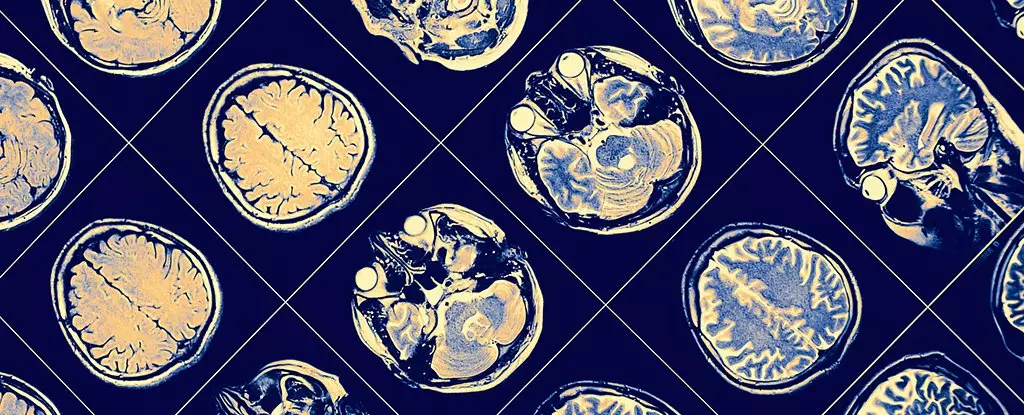Alzheimer’s disease is a complex and devastating condition that affects millions worldwide. Predominantly observed in individuals with a genetic predisposition, it is largely characterized by the buildup of amyloid-beta plaques and neurofibrillary tangles, leading to cognitive decline and memory loss. In a groundbreaking study, researchers have come across a unique and puzzling case of resilience in a subject who, against all odds, has eluded the clutches of Alzheimer’s, despite carrying a high genetic risk associated with an early-onset mutation. This perplexing individual has sparked fresh inquiries into the world of genetic resilience and the hidden mechanisms that might hold the key to delaying or preventing Alzheimer’s.
The remarkable case revolves around a man with the PSEN2 genetic mutation, which is typically linked to early-onset Alzheimer’s disease. His maternal lineage is plagued by this mutation, with a staggering 11 out of 13 siblings having succumbed to the disease by around the age of 50. In stark contrast to his relatives, the subject has maintained normal cognitive function well into his sixties, presenting scientists with an exceptional opportunity to analyze how a seemingly doomed genetic fate can be defied.
This scenario not only highlights the genetic factors involved in Alzheimer’s but also underscores the need for a deeper understanding of the disease’s mechanisms. Previous research has established that amyloid-beta accumulation generally heralds cognitive decline. Thus, finding a case where an individual with high amyloid levels remains cognitively intact challenges existing paradigms and opens avenues for fresh explorations into the pathology of Alzheimer’s.
A dedicated research team—comprising population geneticist Maria Victoria Fernandez and neuroscientists Jorge Llibre-Guerra and Nelly Joseph-Mathurin—has been observing the man since 2011, seeking to decipher the underlying factors of his resilience. Standard cognitive and memory tests over the decade, despite revealing significant amyloid plaque presence in the brain, yielded remarkable results: the man demonstrated no observable cognitive decline or memory impairment.
Further genetic testing ruled out previously identified protective mutations seen in other resilient individuals, pointing researchers toward alternative explanations. Discovering that his brain exhibited substantially reduced levels of inflammation and a unique tau deposition pattern was significant. Generally, tau pathways are more widespread in Alzheimer’s patients, correlating with cognitive decline. However, the unusual containment of tau within the occipital lobe suggests that this might contribute to the man’s preserved cognitive functions and may be critical in understanding extreme resilience in Alzheimer’s cases.
The findings raise intriguing questions regarding the mechanisms that might enable such exceptional resilience. The research team posits that the interaction of nine genetic variants, not previously linked to Alzheimer’s, with unique environmental factors—specifically the man’s occupational exposure to high heat as a mechanic on a diesel engine ship—could play an influential role. This chronic exposure to heat stress may activate cellular pathways associated with the heat shock response and protein folding, potentially enhancing cellular resilience in the context of neurodegenerative diseases.
This interplay between genetics and environment illustrates the complexities underlying Alzheimer’s disease and suggests that resilience may not solely be a matter of genetic luck but could also involve environmental influences. The fact that certain genetic variants found in the subject’s DNA have roles in inflammation and protein folding highlights the need to expand our focus from purely genetic inheritance to consider how external factors may influence health outcomes.
This extraordinary case serves as a reminder of the intricate web of factors influencing Alzheimer’s disease. It emphasizes the potential for uncovering new therapeutic targets and preventive strategies through an improved understanding of resilient mechanisms. Researchers are keen to explore whether the findings from this case can be replicated or observed in larger populations, perhaps uncovering commonalities among other resilient individuals.
As we deepen our understanding of conditions like Alzheimer’s, it becomes increasingly clear that resilience may hold the key to developing effective interventions. Exploring resilience not only expands our knowledge base but could transform approaches to treatment for those with a genetic predisposition to neurodegenerative diseases. In turn, it adds a new layer to our understanding of how individualized responses to genetic risk factors can shape the future of Alzheimer’s research and therapeutics.

